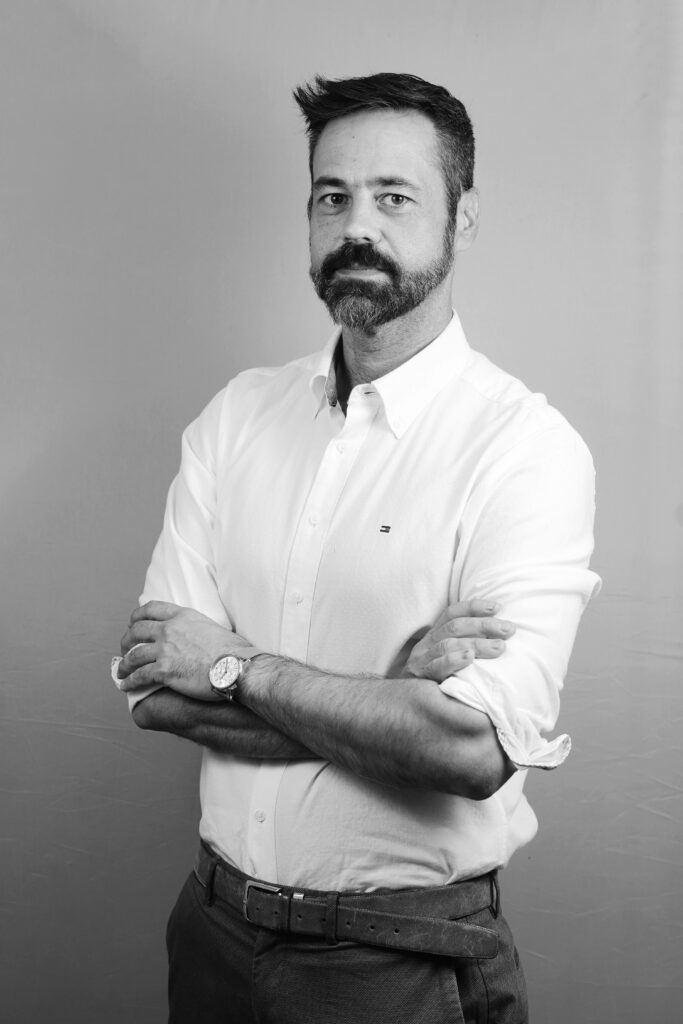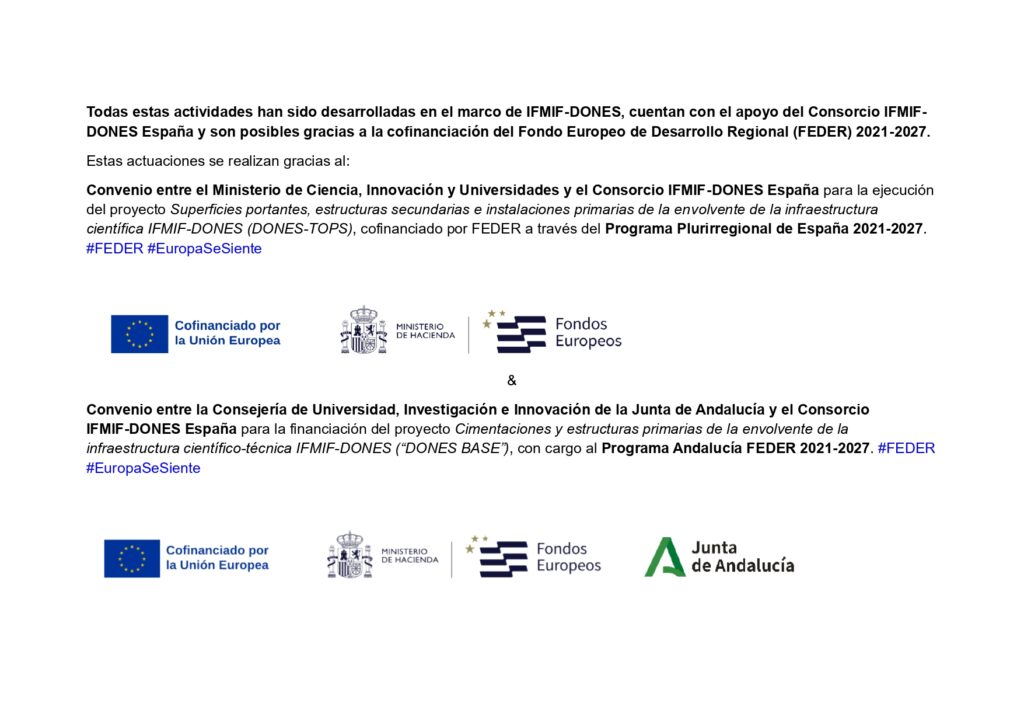“IFMIF-DONES is a clear example of sustainability”
Posted on |

Rafael Esteban (Granada, 1975) holds a Master’s degree in Integrated Management Systems and is a PhD candidate in Civil Engineering at the University of Granada. He joined the project in November 2020 at the University of Granada, where he carried out economic-financial and administrative management tasks during the preparatory phase of IFMIF-DONES. Since February 20, 2023, he has been the Manager of the IFMIF-DONES Spain Consortium, responsible for administrative, economic-financial, legal, and human resources matters. His duties include ensuring budget execution, proper application of public procurement regulations, personnel management, and liaising with governing and oversight bodies.
– QUESTION (Q): You are one of the longest-serving employees of IFMIF-DONES. How have you experienced these five years, both professionally and personally?
– ANSWER (A): It has been a thrilling experience. Professionally, it has allowed me to accompany the project from one of its early phases at the University of Granada (although it must be said that this had been in the works for a much longer time and a great deal of effort and work had already been done before I joined the project) through to its consolidation once the candidacy was resolved favorably for Spain. I have witnessed firsthand the transformation of an idea into a scientific infrastructure with international recognition. Personally, it has been a highly motivating and challenging journey, allowing me to grow tremendously, learn from a multidisciplinary environment, and contribute to Spain leading a world-class project in the field of fusion energy.
– Q: IFMIF-DONES now has a staff of over 70 people. Most are scientists and engineers, but the legal and economic team plays a key role in the Consortium’s good governance. What are your biggest challenges?
– A: The greatest challenge is to ensure that the administrative and financial foundation matches the scientific and technological complexity of the project. This means efficiently managing European, national, and regional funds, complying with demanding regulatory frameworks, and maintaining maximum transparency. All of this happens in an international context and within a rapidly growing organization, which requires foresight, institutional strength, and adaptability. I am extremely fortunate to have a team of excellent professionals and even better human beings, which makes facing any current or future challenge much easier and safer.
– Q: You have taken part in research on economic sustainability applied to large energy projects. Is IFMIF-DONES an example of an economically sustainable scientific infrastructure?
– A: Yes, IFMIF-DONES is a clear example of sustainability. The project has been designed with rigorous, long-term financial planning that ensures its economic viability. But beyond that, its sustainability is reflected in its returns: creation of qualified jobs, boosting of auxiliary industries, attraction of investment, and knowledge transfer. It is an infrastructure that not only advances science but also contributes to economic and social development aligned with the Sustainable Development Goals.
– Q: Your connection to other Singular Scientific and Technical Infrastructures allows you to understand this ecosystem. Do you think society is increasingly aware that R&D&I is the bridge to a better future?
– A: Awareness is indeed growing that science and innovation are essential to tackle global challenges such as climate change and the energy transition. However, we still need to keep working to bring R&D&I closer to the public. Projects like IFMIF-DONES show that investing in research is not an expense but a commitment to competitiveness, social well-being, and a more sustainable future.
– Q: You have always advocated for researchers’ job stability. What do you think about the attraction and retention of national and international talent that IFMIF-DONES is achieving?
– A: It is one of the project’s most important achievements. The fact that researchers and highly qualified professionals are willing to relocate to Granada to work on IFMIF-DONES is proof of its transformative power. The challenge now is to consolidate this attraction by offering stable and predictable conditions that allow researchers to develop their careers over the long term. Talent stability is just as important as infrastructure funding.
– Q: You are a big comic book fan. Is working at IFMIF-DONES like being part of a team of superheroes?
– A: In a way, yes. Comics convey values that are very closely tied to our daily work: the strength of teamwork, personal sacrifice for the common good, responsibility in decision-making, and the conviction that knowledge should serve society. At IFMIF-DONES, the same thing happens: each person brings a unique talent, and when we combine those abilities, we achieve a project that might sound like science fiction but has a very real impact. As in comics, the key lies in unity, mutual trust, and the certainty that together we can reach extraordinary goals. Although we don’t shine quite as brightly as The Avengers — we’re probably missing a few hours at the gym (laughs).
